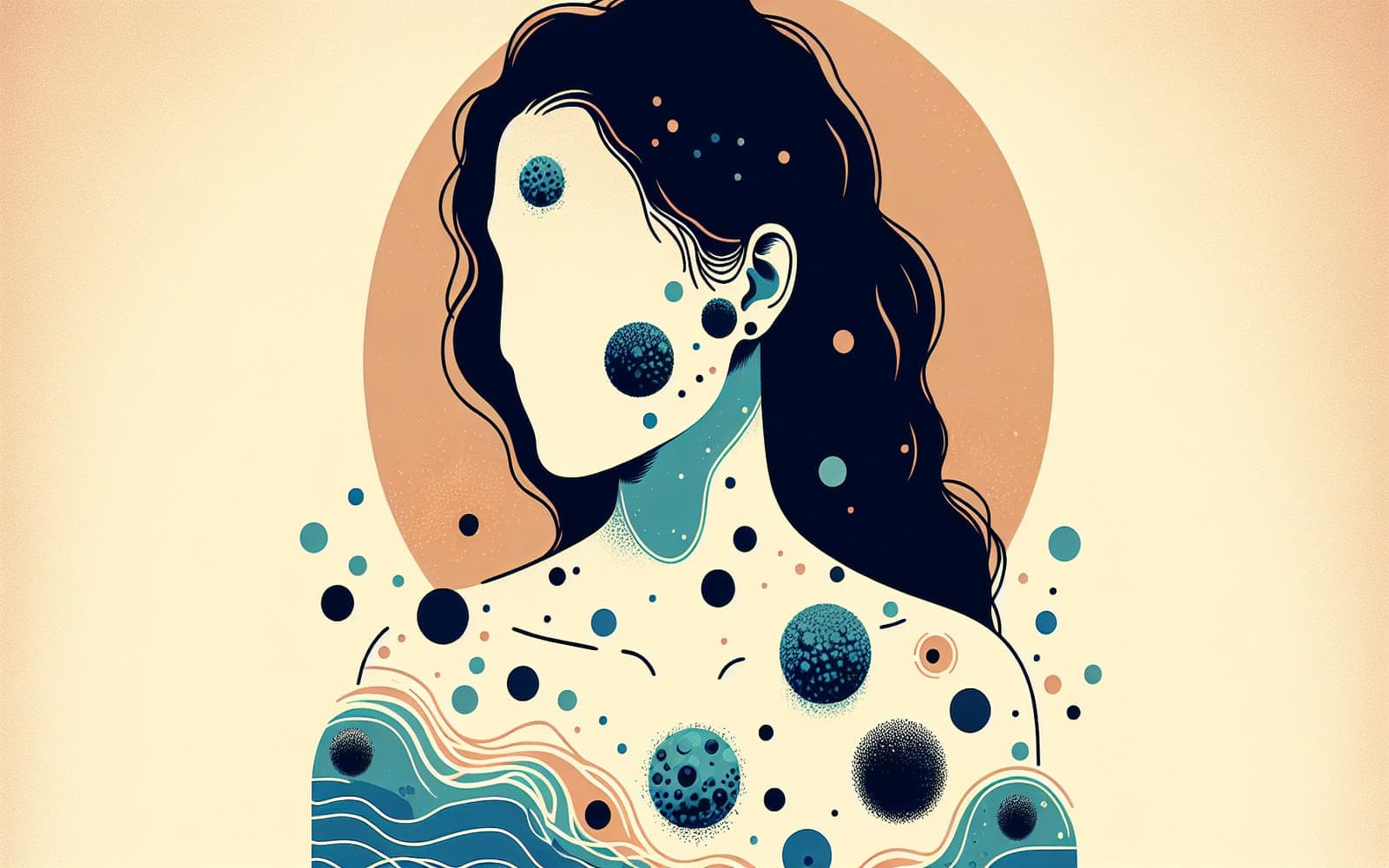Contents
-
The Wart Basics
-
Types of Warts
-
To Treat or Not to Treat?
-
Treatment Options
Warts: The Stubborn Skin Bumps You Need to Know About
Warts: The Stubborn Skin Bumps You Need to Know About
What's the Deal with Warts?
Warts are pesky skin growths caused by a virus that can pop up anywhere on your body. While they're usually harmless, they can be unsightly and sometimes uncomfortable.
Contents
-
The Wart Basics
-
Types of Warts
-
To Treat or Not to Treat?
-
Treatment Options
The Wart Basics
Warts are caused by the human papillomavirus (HPV), which infects the top layer of your skin. There are over 200 types of HPV, and different types tend to cause warts in different areas. For example, HPV type 1 often causes warts on the soles of your feet, while types 6 and 11 typically affect the genital area. Warts spread through skin-to-skin contact, and they're more common in children, young adults, and people with weakened immune systems.
Types of Warts
There are several types of warts you might encounter. Common warts usually appear on hands and are rough to the touch. Plantar warts grow on the soles of your feet and can be painful when you walk. Flat warts are smoother and often appear in large numbers on the face or legs. Filiform warts are long and thin, typically showing up around the mouth or nose.
To Treat or Not to Treat?
Many warts will go away on their own, especially in children. About two-thirds of warts in kids disappear within two years without treatment. However, you might want to treat warts if they're painful, spreading, or causing you embarrassment. People with weakened immune systems may need treatment to prevent warts from becoming extensive or persistent.
Treatment Options
There are many ways to tackle warts. Over-the-counter treatments like salicylic acid can be effective for many people. Doctors can freeze warts off with liquid nitrogen (cryotherapy) or use stronger medications. For stubborn warts, treatments like laser therapy or immunotherapy might be recommended. Remember, even after treatment, warts can come back because the virus may still be in your skin.
FAQs
Are warts contagious?
Yes, warts can spread through direct contact.
How long do warts last?
Warts can last months to years without treatment.
Can I prevent warts?
Avoid touching warts and keep feet covered in public showers.
Do home remedies work for warts?
Some may help, but medical treatments are usually more effective.
Can warts be dangerous?
Rarely, but see a doctor if a wart changes appearance.
The Bottom Line
While warts can be annoying, there are many effective treatments available if you choose not to wait for them to disappear on their own.
Additional References
-
Sterling JC, et al. British Association of Dermatologists' guidelines for the management of cutaneous warts 2014. Br J Dermatol 2014; 171:696.
-
Kwok CS, et al. Topical treatments for cutaneous warts. Cochrane Database Syst Rev 2012; :CD001781.
-
Bruggink SC, et al. Cryotherapy with liquid nitrogen versus topical salicylic acid application for cutaneous warts in primary care: randomized controlled trial. CMAJ 2010; 182:1624.
This article has been reviewed for accuracy by one of the licensed medical doctors working for Doctronic.












